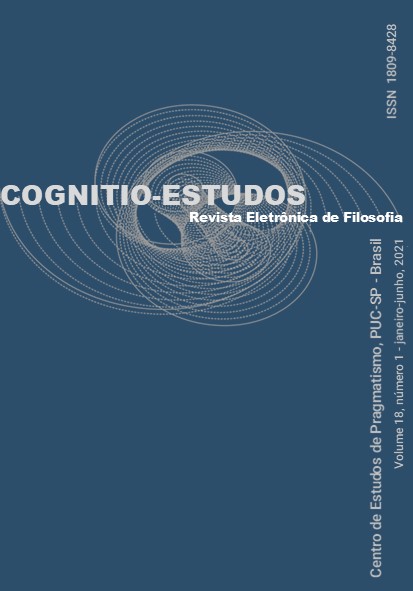Linguistic pragmatism in Dewey: a unified conception of mind, thought and language
DOI:
https://doi.org/10.23925/1809-8428.2021v18i1p50-65Palavras-chave:
Mind. Thought. Language. Theory of Investigation. Warranted AssertibilityResumo
According to Stout (2002), Peirce invented pragmatism, James united the world of human experience and that of language and Dewey transformed pragmatism into an instrument of social, cultural progress and democratic awareness. This article analyses the views of language in Dewey and establishes their links with key concepts within his instrumental pragmatism. We begin by examining his theory of language that brings together the concepts of thought and language and explores the body as the origin of meaning. We analyse his conceptions of communicative action and highlight the role of language in the development of his theory of investigation. Finally, we appreciate the connections between his concept of warranted assertibility, social responsibility and the ethical implications of discourse.

